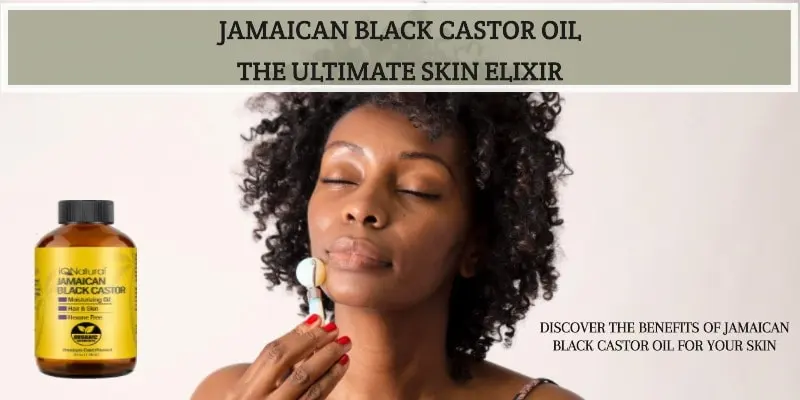Jojoba Oil for Acne: Powerful Home Remedy for Radiant Skin
Jojoba oil is a natural oil and is extracted from the seeds of the jojoba shrub. It is a popular ingredient in skincare products. Jojoba oil is especially best to treat for acne-prone skin.
Acne is a common skin condition when oil and dead skin cells clog pores. This may end up with the formation of whiteheads, blackheads, pimples, and cysts.
Jojoba oil can help acne-prone skin in a number of ways. First, it is non-comedogenic, meaning it will not clog pores. Second, the anti-inflammatory and antimicrobial properties, of jojoba oil can help reduce inflammation and kill bacteria contributing to acne breakouts. Third, jojoba oil helps in regulating sebum production by the sebaceous glands in the skin. Too much sebum can lead to clogged pores and acne breakouts. Jojoba oil can help to balance sebum production eventually helping in reducing the risk of acne breakouts.

Is jojoba oil safe for acne-prone skin? Yes, jojoba oil is generally safe for acne-prone skin. It is a non-comedogenic oil that has anti-inflammatory and antimicrobial properties. Jojoba oil can also help to regulate sebum production, which can help to reduce the risk of acne breakouts.
Using jojoba oil is one of the best remedies for acne-prone skin. It can effectively soothe and moisturize the skin without clogging pores, ultimately reducing the severity of acne breakouts.
In this article, we will discuss the benefits of jojoba oil for acne-prone skin, how to apply it effectively, and tips for using it.
Benefits of jojoba oil for acne-prone skin
Jojoba oil has several benefits for acne-prone skin compared to other oils including:
- Non-comedogenic: Jojoba oil is non-comedogenic, meaning it will not clog pores. This is important for acne-prone skin, as clogged pores can lead to breakouts.
- Anti-inflammatory: Jojoba oil has anti-inflammatory properties, which can help to reduce inflammation and redness associated with acne.
- Antimicrobial: Jojoba oil also has antimicrobial properties, which can help to kill bacteria that can contribute to acne breakouts.
- Regulates sebum production: Jojoba oil can help to regulate sebum production. Sebum is an oily substance that is produced by the skin’s sebaceous glands. Too much sebum can lead to clogged pores and acne breakouts. Jojoba oil can help to balance sebum production, which can help to reduce the risk of acne breakouts.
Here are some specific examples of how jojoba oil can help to improve acne-prone skin:
- Jojoba oil can help to reduce inflammation and redness associated with acne. This is because jojoba oil contains compounds that have anti-inflammatory properties. For example, one study found that jojoba oil was effective in reducing inflammation and redness in people with acne vulgaris.1
- Jojoba oil can help to kill some bacteria that can contribute to acne breakouts. This is because jojoba oil contains compounds that have antimicrobial properties.
- Jojoba oil can help regulate sebum production. This is important for acne-prone skin, as too much sebum can lead to clogged pores and acne breakouts. One study found that jojoba oil was effective in reducing sebum production in people with acne vulgaris.2
Overall, jojoba oil is a safe and effective natural treatment for acne-prone skin. It is non-comedogenic, has anti-inflammatory and antimicrobial properties, and can help to regulate sebum production. Jojoba oil is known to be beneficial for the skin, as it helps to keep it radiant with regular use.
How to Use Jojoba Oil for Acne-prone Skin?
Jojoba oil can be used in several ways to improve acne-prone skin. Here are a few tips:
Cleansing: Jojoba oil can be used to cleanse the face and remove dirt, oil, and makeup.
- Apply a small amount of jojoba oil to your fingertips.
- Massage the jojoba oil into your skin in circular motions for one to two minutes.
- Rinse your face with warm water and pat it dry.
Moisturizing: Jojoba oil can also be used to moisturize the face.
- Apply a small amount of jojoba oil to your fingertips.
- Massage the jojoba oil into your skin until it is fully absorbed.
Spot treatment: Jojoba oil can also be used as a spot treatment for acne breakouts. T
- Apply a small amount of jojoba oil to a cotton swab.
- Dab the cotton swab onto the affected area.
- Allow the jojoba oil to absorb into the skin.
You can use jojoba oil for acne-prone skin once or twice a day. If you have sensitive skin, you may want to start using jojoba oil once a day and increase it gradually as needed.
Other Tips for using jojoba oil for acne-prone skin

Here are some tips for using jojoba oil for acne-prone skin:
- Start with a small amount and increase gradually as needed. This is to help you assess your skin’s tolerance to jojoba oil.
- Do a patch test on a small area of skin before using it all over your face. This is to check for any allergic reactions.
- If you experience any irritation, stop using jojoba oil. This is a sign that your skin is not tolerating jojoba oil well.
- Don’t use jojoba oil if you are allergic to nuts. Jojoba oil is derived from the jojoba shrub, which is a type of nut.
Here are some additional tips:
- Choose a high-quality jojoba oil. Look for an oil that is cold-pressed and organic.
- Store your jojoba oil in a cool, dark place. This will help to prolong its shelf life.
- Use jojoba oil consistently. For best results, use jojoba oil once or twice a day.
By following these tips, you can safely and effectively use jojoba oil to improve your acne-prone skin.
Precautions

Jojoba oil is generally safe for most people, but it is always a good idea to do a patch test before using any new product on your skin. This is to check for any allergic reactions.
To do a patch test, apply a small amount of jojoba oil to a small area of skin, such as the inside of your wrist. Wait 24 hours to see if you experience any irritation. If you do not experience any irritation, you can use jojoba oil on your face.
If you have very sensitive skin, you may want to avoid using jojoba oil, as it can be irritating for some people. Jojoba oil is also a mild nut oil, so if you are allergic to nuts, you should avoid using jojoba oil as well.
Here are some additional precautions to keep in mind:
- Do not ingest jojoba oil. Jojoba oil is not meant to be ingested and can cause stomach upset.
- Keep jojoba oil out of your eyes. Jojoba oil can irritate your eyes. If you get jojoba oil in your eyes, rinse them immediately with water.
- Store jojoba oil in a cool, dark place. This will help to prolong its shelf life.
By following these precautions, you can safely and effectively use jojoba oil to improve your acne-prone skin.
Key Takeaways
Jojoba oil is a safe and effective natural treatment for acne-prone skin. It is non-comedogenic, has anti-inflammatory and antimicrobial properties, and can help to regulate sebum production.
Overall, jojoba oil is a safe and effective natural treatment for acne-prone skin. It is important to note that jojoba oil may not be suitable for everyone, and it is always best to do a patch test before using any new product on your skin.
Footnotes:
- Clay Jojoba Oil Facial Mask for Lesioned Skin and Mild Acne – Results of a Prospective, Observational Pilot Study | Complementary Medicine Research | Karger Publishers ↩︎
- JD Jojoba Oil: Reducing Sebum with Anti-Acne Potential | A Study (jojobadesert.com) ↩︎
Source:
Noble Home Remedies adheres to rigorous sourcing standards, drawing information from peer-reviewed studies, reputable academic research institutions, and esteemed medical journals and associations. We prioritize using high-quality, trustworthy sources to maintain the accuracy and integrity of our content. You can learn more about how we ensure our content is accurate and current by reading our editorial policy.
- Can Jojoba Oil Help Clear Up Acne?
Can Jojoba Oil Really Help Clear Up Acne? | Allure - Can jojoba oil treat acne?
Jojoba oil for acne: Does it work, how to use it, and risks (medicalnewstoday.com) - Jojoba Oil and Acne: Does It Work?
Can Jojoba Oil Treat My Acne? (healthline.com) - JD Jojoba oil: Reducing sebum with anti-acne potential
JD Jojoba Oil: Reducing Sebum with Anti-Acne Potential | A Study (jojobadesert.com)
Trust in your purchase:
Every product featured on our site has been carefully researched and selected based on quality, customer ratings, and positive reviews to ensure you receive excellent value for your money.
Please note:
This post contains affiliate links. If you make a purchase through these links, we may earn a small commission at no additional cost to you. This helps support our site and allows us to continue bringing you valuable content. Thank you!
Thank you for your precious time spent with NobleHomeRemedies.
You may also like:
Unwanted Facial Hair Removal Naturally
Unwanted Facial Hair Removal Naturally Here are your awesome facial hair removal home remedies. Facial…
Get Rid Of Cellulite
How to Get Rid Of Cellulite: 11 Methods for Thighs and Butt In this article,…
Treating Acne Scars Naturally at Home
The Ultimate Guide to Treating Acne Scars Naturally at Home It can be tough when…
How to Use Jojoba Oil for Skin
How to Use Jojoba Oil for Glowing Skin: 9 Steps for Face and Body To…
Castor Oil for Eyelash Growth
Castor Oil: Your Secret to Lush, Beautiful & Powerful Eyelash Growth It sounds like you’re…
Jamaican Black Castor Oil For Skin
Jamaican Black Castor Oil for Skin: Powerful Skincare Aid Jamaican black castor oil is so…






